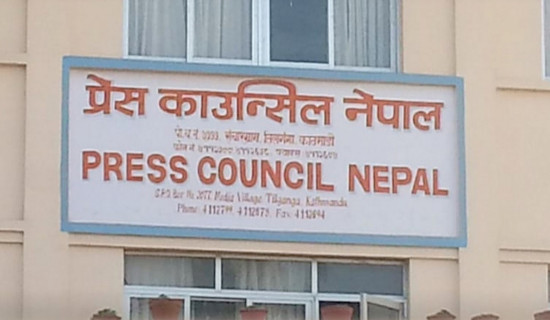- Tuesday, 24 February 2026
Equip Healthcare Well
The groundwork for all happiness is good health, says Leigh Hunt. Yes, without good health, a person can’t lead a meaningful life no matter how much material wealth one accumulates. So health comes first over any other priorities of life. But an individual alone can’t be able to afford for sound physical and mental life. This demands state’s greater role in ensuring quality and affordable health services to all citizens irrespective of their social and economic status. Nepal’s constitution has made it mandatory for the state to provide free basic health services to every citizen. Although health is a fundamental right of the people, it has been a herculean task for the state agencies to meet this constitutional requirement owing to the insufficient budget and infrastructure, dearth of doctors and nurses and so on.
Moreover, health services have become costly. As state-run health posts and hospitals are running beyond capacity, the patients are compelled to visit the expensive private hospitals, clinics and nursing homes to get quality health services. This naturally impels the government to extend sufficient financial support to the state-run medical centres so that they are equipped with advanced technology, competent doctors and other facilities. Modern medical equipment is one important element in guaranteeing the effective and quality healthcare services. The medical professionals largely rely on the equipment to precisely diagnose and treat the patients. Therefore, the concerned agencies have to follow rigorous process to procure the health equipment. After their purchase and installation in the health centres, competent technical hands should be manned to use and maintain them properly.
A news report, carried by this daily on Sunday, sheds light on the achievements made in the procurement of medical equipment, especially after the country was restructured into federal set-up. It states that the three-tier governments have given due priority to purchasing medical equipment bearing in mind their needs and budget limitation. The concerned authorities have said that the administrative process of procurement is complex, requiring careful analysis of minimum standards and specific equipment as required by the government hospitals. There is the need for strategic planning for a collaborative approach among the three tiers of government so that they optimise resource allocation and avoid duplicity. Similarly, it is necessary to consult experts such as doctors and biomedical engineers to ensure the practical needs and the standards of equipment before purchase process is finalised. They must meet international standards and quality.
Challenges also lie in their safe delivery from the origin to destination countries. In view of rapid development of technology, the priority should be given to buying latest version equipment manufactured as per new medical research. Availability of skilled healthcare professionals is vital to handle such equipment. In order to remove complexity in procurement, the related ministry has forwarded proposals for the amendment of the Public Procurement Act. It has asked to include the provisions such as standardised criteria to acquire medical equipment, maintain consistency in quality and pricing through centralised bidding system. It has taken measures to institutionalise procurement information systems, and enhance contract management and procurement and supply management capacities. The government needs to mobilise resources to properly utilise the expensive and sophisticated equipment so that they do not lie idle and taxpayers' money is not wasted.
















-original-thumb.jpg)
